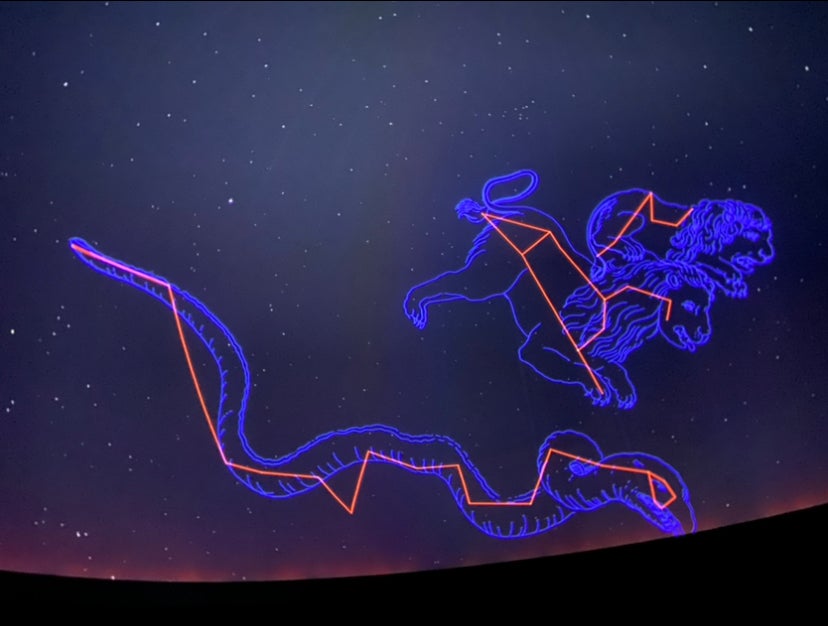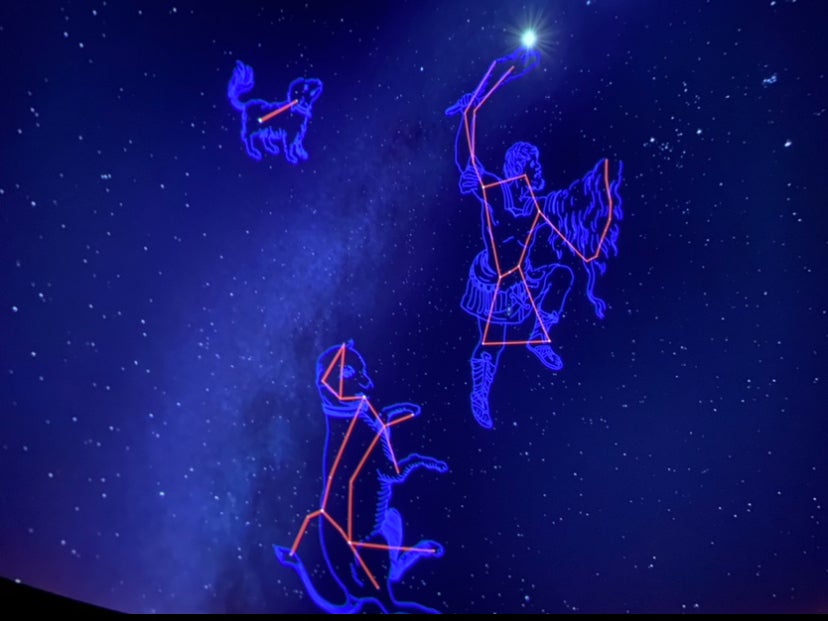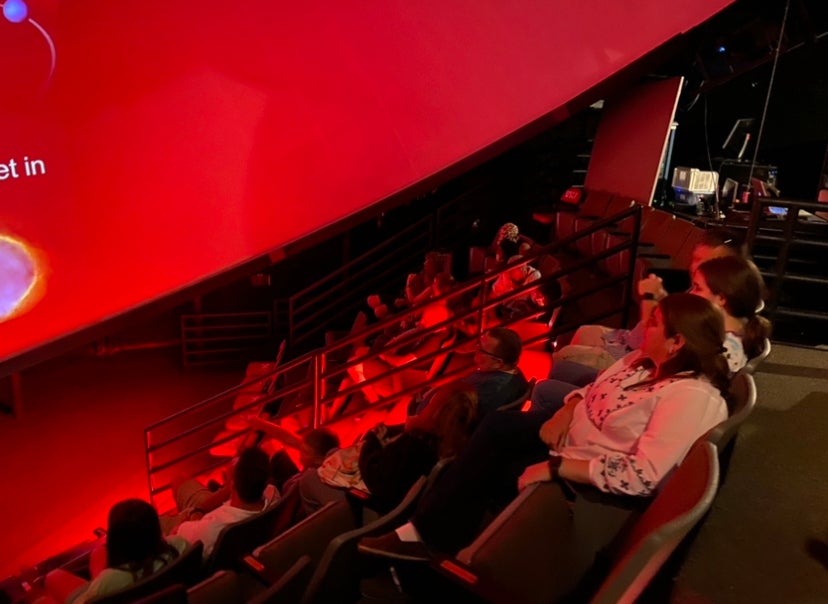AIKEN — The wonders of the heavens come to life at Aiken’s DuPont Planetarium.
“It’s a great place to come so that you can have these experiences to learn more about the world around you and the universe around you, in a fun, entertaining and special way that we can do here in our facility,” said Gary Senn, director of the Ruth Patrick Science and Education Center, where the DuPont Planetarium is housed on the campus of the University of South Carolina Aiken.
The planetarium is celebrating its 27th anniversary this summer.
Open to the public year-round, the planetarium offers shows every Saturday evening for three hours for a small fee. During the summer, there are also two Friday Family Fun Day shows at 10 and 11 a.m. The shows are child friendly; however, for safety reasons, no one under the age of four is permitted.
MORE: River event features kayak race and music
Shows change every month and some are even exclusive to DuPont, created by a local team. Exclusive shows include Ancient Skylore, Digistar Special Effects Extravaganza, Engineering the International Space Station, I Spy the Sky and To the Moon and Beyond.
“Overall, it is our goal here to provide a great immersive environment to teach about astronomy and science and history,” said Senn. “It is good for young people, for all people no matter how old they are, to have an appreciation for the heavens above, and we have a wonderful facility here that can help people understand and appreciate the world around us and the universe around us.”


Senn expressed his love for the planetarium and its importance in the Aiken community.
“We have — really, I would call it a jewel — here in Aiken, South Carolina. The kind of system that we have in this planetarium, typically you find in the largest cities of America. So, the fact that we can have one here in the small city of Aiken is really a great opportunity for us,” he said.
Senn explained the facility’s “high-end, state of the art technology that brings the universe to life inside of the planetarium” caters to the center’s “goal to inspire others to explore the majesty of the heavens.”
He also said that the DuPont facility is the only planetarium in the world to have a camera obscura inside, something they do not advertise often, but will surely be interesting for photography fanatics.
Senn said “I enjoy talking with people and interacting with them in the planetarium, making it enjoyable for them and exciting. And then when they leave, they’re really excited about what they learned and go out and show people what they learned about.”
David Boyd, planetarium presenter, said “the planetarium is an opportunity to share astronomy independent of the weather.” After planetarium shows, weather and darkness permitting, guests are encouraged to head up to the roof to see the observatory and look through the university’s advanced telescope.
Boyd expressed the importance of a planetarium, especially after the pandemic isolated so many, “being able to come to something like a planetarium and have a lot of people with a common purpose come together, to be able to sit down and comfortably look at a sky, that they may never have seen, it’s an opportunity to have people remember something in their past.”

Boyd also explained that some individuals, children or those who grew up in cities, never get to experience the grandeur of the sky outside of a planetarium as a result of light pollution.
When asked about the significance of bringing people together to enjoy the night sky, Boyd said “It’s not a question of faith … we’ve lost our connection to what the sky was. Only a hundred years ago, the electric light was not prevalent and everything that humans have been doing for thousands of years was centered on the stars. You didn’t have T.V., there wasn’t internet, you went outside, and it was grand. And everybody saw the same thing. It was a unifying thing, and now we’re all apart from that, you never see it, it’s a communal thing that we’re denied.”
MORE: Photojournalism: JoeFest Toy and Comic Show
Boyd also explained that “you don’t have to be a scientist, you don’t even have to believe in science, to acknowledge that something is beautiful. [Just like] you don’t have to look at a piece of art and acknowledge that ‘oh the technique is this and the paint was that.’ It’s beautiful if you see it that way.”
Boyd and Senn both said their favorite planetarium show was their Christmas program, Mystery of the Christmas Star, because it brings people together and has even become a holiday tradition for some families. Boyd also said he favors the Seven Wonders’ program because of the wonderful narration and subject.
“It’s an inclusive and binding thing, whether or not you’re interested in astronomy as a science. It is, at its heart, beautiful and it unites. There’s nothing divisive about astronomy,” said Boyd.
For more information about the DuPont Planetarium go to: https://www.usca.edu/rpsec/departments/planetarium
For more information on the Ruth Patrick Science Education Center go to: https://www.usca.edu/rpsec











